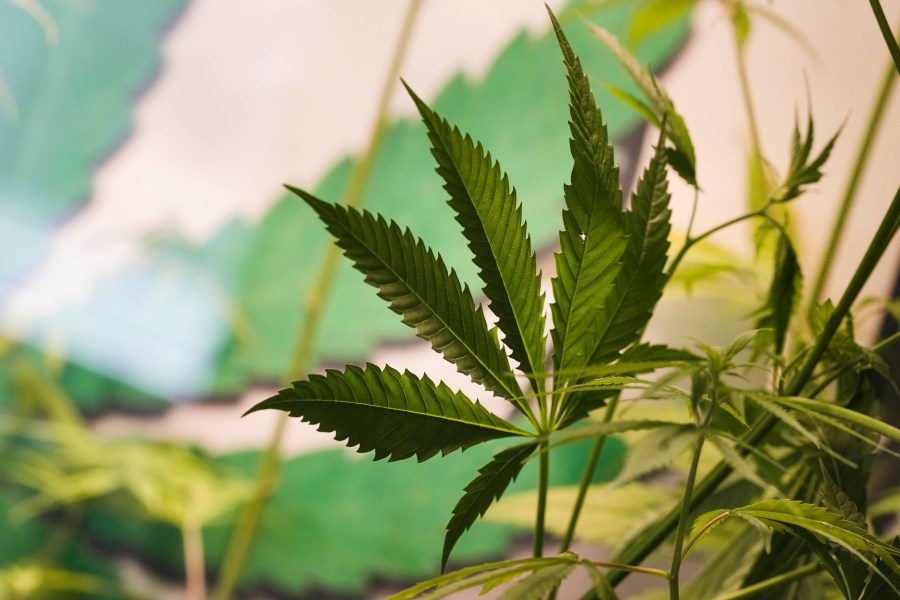Health
Hemp Industry Faces Crisis as Senate Approves Federal THC Ban

The hemp industry is facing a significant threat following the U.S. Senate’s approval of a federal ban on tetrahydrocannabinol (THC) late on July 17, 2023. Industry representatives are warning that this move could lead to what they describe as an “extinction-level event” for hemp producers across the United States. The decision comes amid growing concerns over the regulation of cannabis products, putting many businesses in jeopardy.
The proposed ban, championed by Republican lawmakers, aims to address the rising prevalence of THC in hemp-derived products. Critics argue that the legislation could devastate an industry that has seen remarkable growth since the 2018 Farm Bill legalized hemp cultivation. According to the National Hemp Association, the hemp market was valued at approximately $4 billion in 2022, driven by demand for CBD products, textiles, and sustainable materials.
Industry Response to Legislative Changes
In response to the Senate’s decision, stakeholders within the hemp sector are mobilizing to challenge the legislation. Many are calling on the U.S. Department of Agriculture to take a more supportive stance toward hemp producers. Janel Ralph, CEO of a prominent hemp company, stated, “This ban could wipe out years of hard work and innovation. We need constructive dialogue, not punitive measures.”
The response from various advocacy groups has been swift. The National Hemp Association has launched a campaign urging consumers and producers to voice their opposition to the ban. Their efforts include petitions and outreach to lawmakers, emphasizing the economic impact of the hemp industry on rural communities.
Potential Economic Impact and Future Prospects
If enacted, the THC ban could disrupt an industry still recovering from the challenges posed by the COVID-19 pandemic. Many small farmers who pivoted to hemp cultivation may find their investments jeopardized, leading to significant job losses. The potential loss of revenue could extend beyond farmers, affecting manufacturers, retailers, and consumers who rely on hemp products.
Industry experts suggest that the Senate’s decision may lead to a fragmented market, with states creating their own regulations in response to the federal ban. This could create a patchwork of laws, making compliance challenging for businesses that operate in multiple jurisdictions.
As the situation develops, the hemp community is focused on advocating for a balanced regulatory approach that considers both safety and economic viability. The outcome of this legislative battle will not only shape the future of hemp production but also set a precedent for how similar industries are regulated in the future.
The coming weeks will be crucial as industry representatives prepare to engage with lawmakers and push for amendments that protect the interests of hemp producers and consumers alike.
-

 Science3 weeks ago
Science3 weeks agoInventor Achieves Breakthrough with 2 Billion FPS Laser Video
-

 Health4 weeks ago
Health4 weeks agoCommunity Unites for 7th Annual Into the Light Walk for Mental Health
-

 Top Stories4 weeks ago
Top Stories4 weeks agoCharlie Sheen’s New Romance: ‘Glowing’ with Younger Partner
-

 Entertainment4 weeks ago
Entertainment4 weeks agoDua Lipa Aces GCSE Spanish, Sparks Super Bowl Buzz with Fans
-

 Business4 weeks ago
Business4 weeks agoTyler Technologies Set to Reveal Q3 Earnings on October 22
-

 Entertainment4 weeks ago
Entertainment4 weeks agoMother Fights to Reunite with Children After Kidnapping in New Drama
-

 World4 weeks ago
World4 weeks agoR&B Icon D’Angelo Dies at 51, Leaving Lasting Legacy
-

 Health4 weeks ago
Health4 weeks agoCurium Group, PeptiDream, and PDRadiopharma Launch Key Cancer Trial
-

 Entertainment4 weeks ago
Entertainment4 weeks agoRed Sox’s Bregman to Become Free Agent; Tigers Commit to Skubal
-

 Health4 weeks ago
Health4 weeks agoNorth Carolina’s Biotech Boom: Billions in New Investments
-

 Science4 weeks ago
Science4 weeks agoNorth Carolina’s Biotech Boom: Billions Invested in Manufacturing
-

 Top Stories4 weeks ago
Top Stories4 weeks agoFormer Mozilla CMO Launches AI-Driven Cannabis Cocktail Brand Fast








